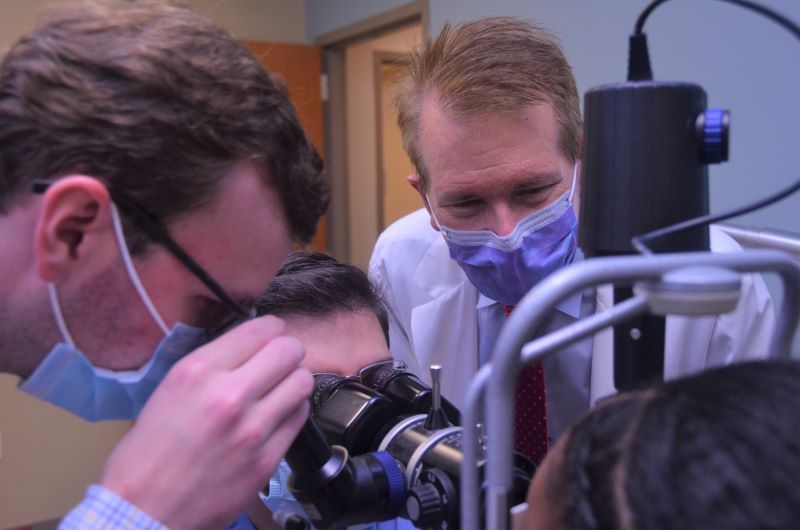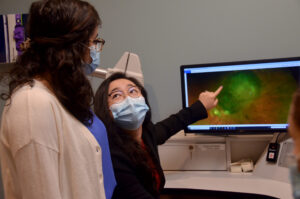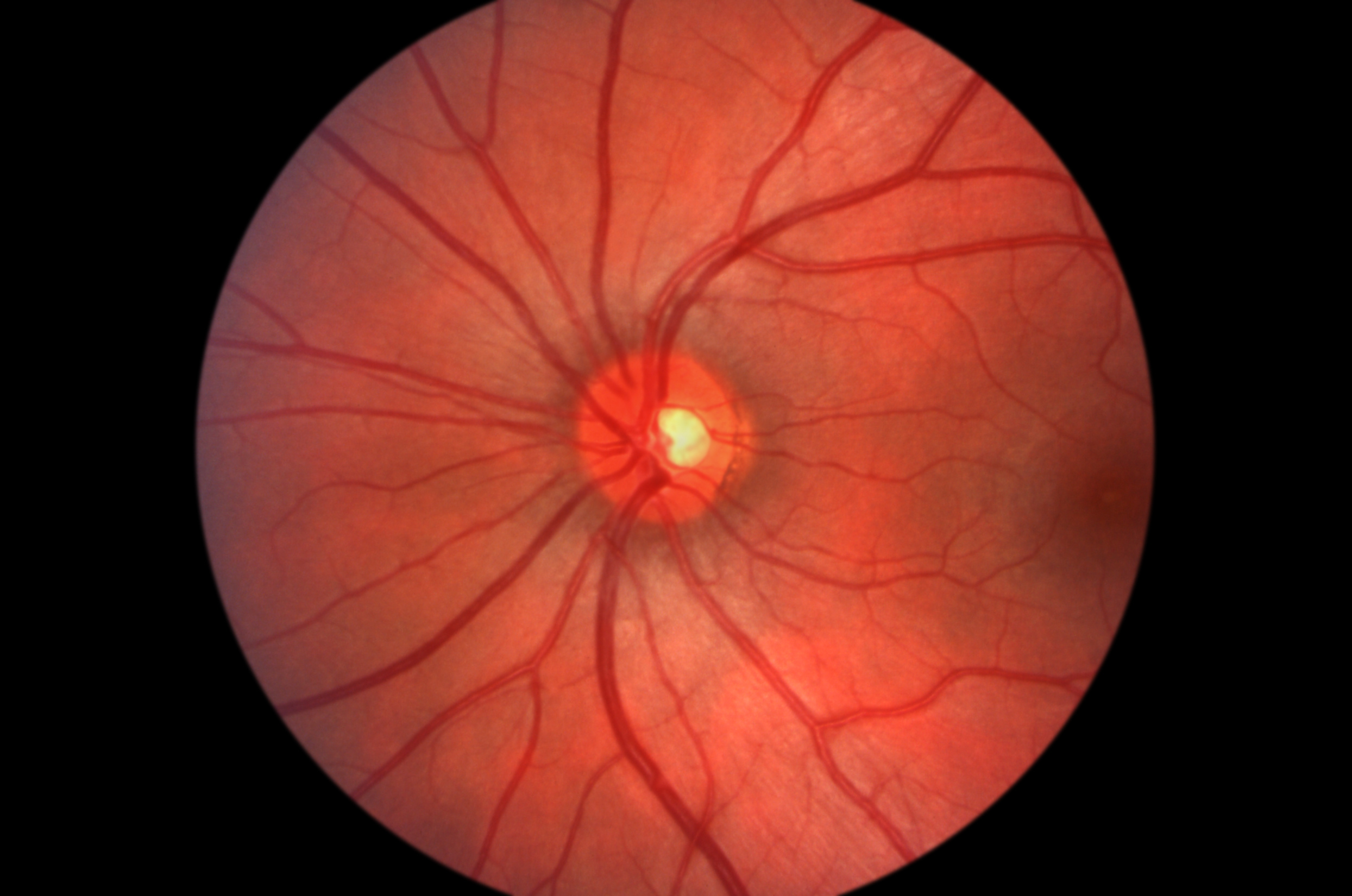Who We Are
UNC Department of Ophthalmology has an unwavering mission to improve the health of our patients through providing the highest-quality clinical care, pioneering new approaches to treat and prevent eye disease, and educating the next generation of ophthalmologists through our residents and fellows program.
Our primary patient care location — UNC Kittner Eye Center — is named for David Kittner, a native of North Carolina, proud alumnus, and long-time donor to the University of North Carolina. Mr. Kittner earned a business degree from the University of North Carolina in 1939. He served his country in the United States Army and then earned a law degree from the University of Pennsylvania. Throughout his distinguished legal career in Philadelphia, his alma mater remained a point of pride for Mr. Kittner. In 1988, he established a scholarship at UNC in memory of his parents. Twenty years later, he endowed a fund to create the UNC Kittner Eye Center in 2011, which serves patients from North Carolina and beyond via the clinical excellence of UNC Department of Ophthalmology eye specialists. Mr. Kittner also donated funds to establish a Distinguished Professorship in Ophthalmology at UNC. His spirit and legacy lives on through the Kittner family’s generous support for UNC Ophthalmology interests and initiatives.
UNC Department of Ophthalmology welcomes patients and their families to supportive and collegial clinic environments. The clinical expertise of our highly trained eye specialists and excellence in customer service of our staff ensures those we care for have exceptional patient experience. Our abiding values include reaching and caring for underserved populations and providing new and proven treatments to patients from North Carolina and beyond at our six regional outpatient locations and UNC Hospitals Hillsborough campus.
The UNC Department of Ophthalmology began training residents in ophthalmology in 1956. We offer our resident physicians, fellows, and medical students a robust learning experience via current, comprehensive didactic and hands-on teaching. Our goal is to produce leaders in the field of ophthalmology who are medically, surgically, and culturally competent. The Department trains four residents per class, offering them rigorous, hands-on medical and surgical involvement in high-volume comprehensive and complex patient cases toward achieving medical and surgical competence in ophthalmology.
We strive to preserve an environment that fosters innovation and progress through action-directed dialogue and strong mentoring. We strive to incorporate the most innovative and medically relevant teaching resources available at UNC and beyond. We offer continuing education opportunities to our colleagues in ophthalmology and other medical fields to ensure quality patient care throughout North Carolina.
The National Federation of the Blind reports that nearly 7.3 million people in the United States have a visual disability. In North Carolina, 254,000 individuals live with a visual disability. Only 40% of those with visual disabilities are employed. Imagine if research could improve vision, prevent eye disease, enable people at risk for visual impairment to prevent and delay blindness and offer those with visual impairment the opportunities that many of us take for granted.
This is what we imagine at UNC and it is why we established the Carolina Eye Research Institute. This dynamic Institute is a leading translational research entity in discovering new treatments, delivering innovative methods to restore sight, and performing thoughtful clinical trials.
Our research team is working on projects in gene therapy and nanotechnology for retinal disease, macular degeneration glaucoma, and corneal disease. We have been successful in establishing proof of concept in rare diseases and have applied successful research results to treating a range of eye disease. All of our research is translational and benefits from the collaborative relationships we have with colleagues in other fields and institutions. Patients at UNC benefit from these discoveries and are routinely offered the opportunity to participate in clinical trials.








